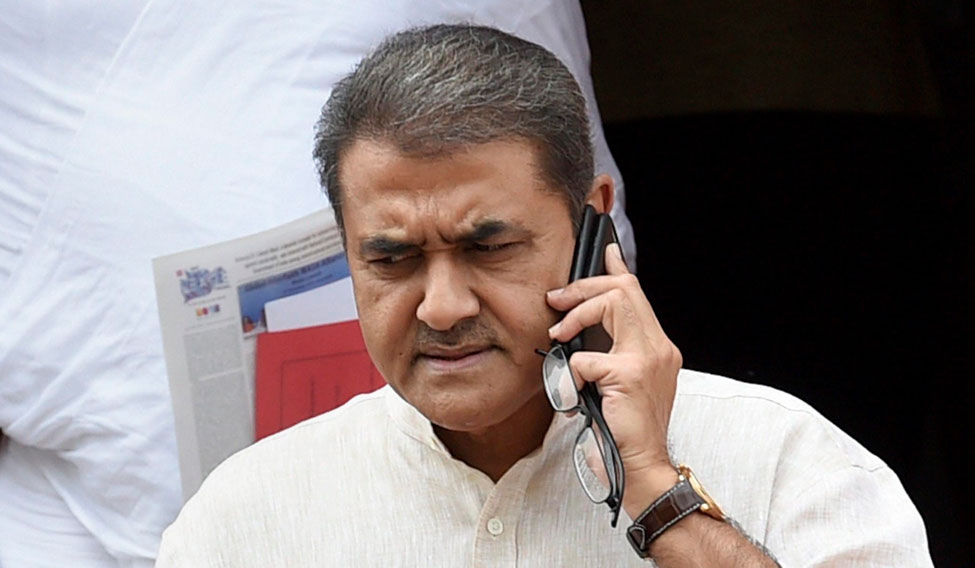Among the questions being raised over All India Football Federation’s brush with the Indian courts, there lies a moot one—why is its president Praful Patel an angry man and what exactly are the stakes involved?
The Delhi High Court order of November 16, 2017, had left Praful Patel, former Union minister and incumbent president of the AIFF fuming. The High Court set aside Patel’s election as the president for a third successive term. It came as a mighty blow to Patel who was basking in the glory of a well-organised FIFA U-17 World Cup, which concluded recently. FIFA was happy with him and so was the Asian Football Confederation (AFC). The court accepted petitioner Rahul Mehra’s contention that the AIFF was violating the National Sports Development Code 2011. Former chief election commissioner S.Y. Quraishi was appointed the administrator of the AIFF and was asked to hold elections as per the NSDC.
Though the football federation maintained that it not only followed the sports code while drafting the constitution, but also held the elections as per the code and FIFA charter, the Delhi High Court clearly wasn’t convinced by this defence.
Thereafter, Patel and AIFF sought relief from the Supreme Court where they succeeded partially. A bench comprising Chief Justice Dipak Misra and Justices A.M. Khanwilkar and D.Y. Chandrachud, which is also hearing the plea filed by the Board of Control for Cricket in India (BCCI) against the Lodha Committee reforms, set aside the stay on the elected office bearers and ordered redrafting of a new constitution to be overseen by Quraishi. The bench further said in its order that the constitution will be “in consonance with the NSDC and the model guidelines for the conduct of its [AIFF] business, constitution of the executive committee and elections thereto, whilst ensuring that the status and membership [of the AIFF] is not undermined in any manner in the international body [FIFA]”.
Former India captain and goalkeeper in the 1982 Asian Games, Bhaskar Ganguly, too, was appointed ombudsman. Quraishi was asked to submit the draft of the new constitution in a sealed envelope.
And herein lies the catch.
The root cause of concern is Patel’s bid to become AIFF’s life president once his current term gets over. There's nothing wrong in that, since sports federations have had the post of “life” or “honorary presidents”, but these are posts without any executive powers. In fact, FIFA’s second longest-serving president Joao de Havelange received the title of Honorary President when leaving office in 1998.
The NSDC and sports ministry both discourage such posts, which allow certain individuals to continue in influential posts, thus leading to vested interests. In fact, when the IOA tried to bring in tainted Abhay Chautala and Lalit Bhanot back into its fold by giving them honorary and life posts, the sports ministry cracked down immediately and derecognised the IOA. Even the draft of the NSDC 2017, which is yet to be ratified, proposes ban on any such posts.
According to the AIFF's constitution, which was passed in the annual general body meeting in Mumbai earlier this year, immense powers were vested in the life president—like the unfettered right to represent India in the FIFA and the AFC. It is reliably learnt that Patel is extremely keen on the latter.
The AIFF, in the past, did have a post of life president but without powers. Ziauddin, who served as president, secretary and treasurer of the AIFF for 40 years (also, the former principal of Anjuman High School), was made life president and special invitee to general body meetings by Priya Ranjan Dasmunshi, the man who succeeded Ziauddin in 1988. After he died, the post was left vacant for many years.
Last December, the constitution was amended to give more powers to the AIFF life president, like attending executive committee meetings and be part of the extremely powerful and exclusive emergency committee of the AIFF, which has only elected office-bearers as members.






